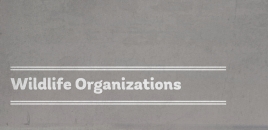
Wildlife Organizations

Biodiversity Conservation

Wildlife Protection | Ultimo Conservation Environmental Organisations
About Us
Products and Services
Servicing Suburbs
About Us
Environmental Organisations Ultimo
Species and Oceans
Food and Climate
Dedicated Environmental Organisations in Ultimo
Products and Services
Type
Volunteer, Non-Profit
Service
Environmental Protection, Wildlife Conservation, Wildlife Protection, Conservation
Concern
Animal Cruelty, Animal Welfare, Deforestation, Pollution
Location
Asia, Africa, Europe, Australia, South America, North America, World-Wide
Keywords
Biodiversity Conservation, Environmental Groups, Biodiversity Definition, Conservation Organisation, Conservation, What Is Biodiversity, Conservation Definition, Define Conservation, Environmental Organisations, Wild Life, Conservation Groups, Endangered Species List, Wildlife Jobs, Conservation Volunteers, Wildlife Volunteer, World Wildlife Foundation, Endangered Animals, Wildlife Conservation Society, Marine Conservation, Environment, Australian Wildlife, Environmental Jobs, Wild Animals, World Wildlife Fund, Extinct Animals, Wildlife Conservation Jobs, Rainforest Conservation, Conservation Biology, Conservation Organisations, Conservation Jobs Australia, Animal Conservation Jobs, Biological Conservation, What Does Conservation Mean, Biodiversity And Conservation, Biodiversity, Endangered Species, Ultimo Animals, Wildlife Protection, Animals, African Animals, Animal Conservation, Wildlife Conservation, Wildlife, Conservation Volunteer, Environmental Conservation, Sustainability, Wildlife Organisations, Conservation Jobs
Servicing Suburbs
Does WWF work on animal welfare issues?
Ultimo WWF works to conserve endangered species, protect endangered places, and address global threats to the planet, such as climate change. While a lot of our work is protecting endangered animals in the wild – including tiger, orang-utan, marine turtle, rock-wallaby, dugong, snubfin dolphin – our expertise is not in dealing with issues relating to animals in captivity. While animal welfare is outside our expertise and our legally-binding constitution, we’re constantly striving to build the world in which humans live in harmony with nature. For information about animal welfare issues, we suggest that you contact environmental organisations such as HSI (the Humane Society International), World Animal Protection (formerly WSPA), or the RSPCA (the Royal Society for the Prevention of Cruelty to Animals), which campaign to end captive animal abuse.
What do the initials WWF environmental organisations stand for now and when did they change
When it was founded in 1961, Ultimo WWF stood for the ‘World Wildlife Fund’. As the environmental organisations grew throughout the 70s and 80s, WWF began to expand its work to conserve the environment as a whole (reflecting the interdependence of all living things), rather than just focussing on species. In 1986, WWF realised that the name no longer reflected the scope of our activities, so we changed our name to ‘World Wide Fund for Nature’ in all countries except the United States and Canada. The resulting confusion and translation discrepancies across more than 15 languages led to the decision, in 2001, to adopt the original acronym – WWF - as our one, global name.
Who is WWF - Australia's President?
Robert Purves, AM, BCom is President and has been a member of the Board of Directors since 2010. He is also former President of Ultimo WWF-Australia and former Board Member of environmental organisations WWF International.















